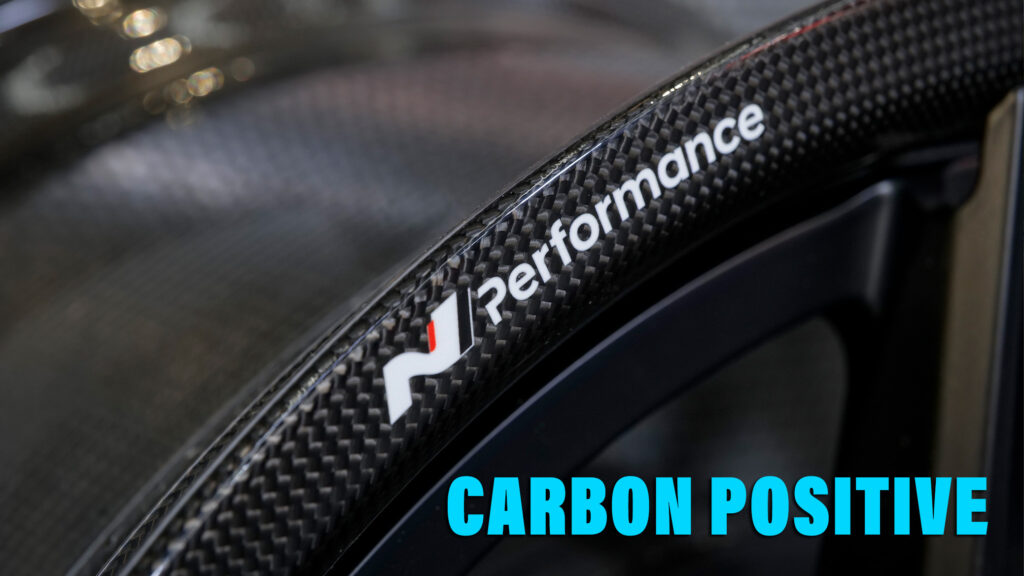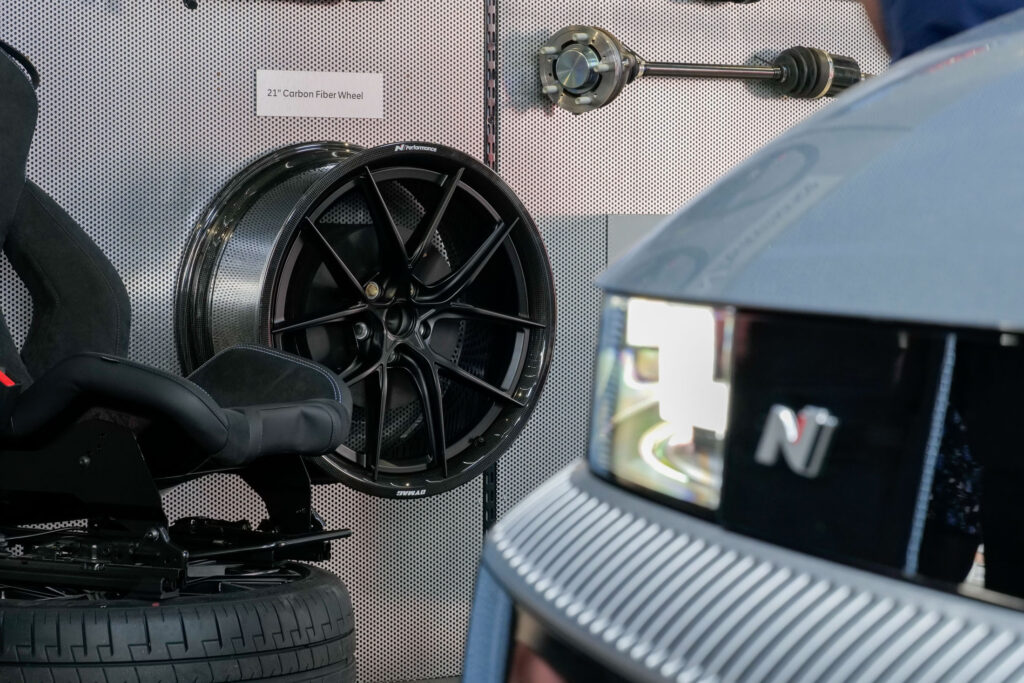UK wheel specialist says it’s also close to announcing similar deals with other brands
1 hour ago
 –>
–> 
–>
Hyundai’s high performance N models have proved that they’re good enough to run with rivals from more established brands. But now Hyundai is about to up the ante by offering something normally only available on mega-buck supercars: carbon wheels.
The Korean car maker has teamed up with UK wheel specialist Dymag and the composites experts at Hankuk Carbon to develop a line of hybrid carbon wheels for its N cars. Though Dymag hasn’t revealed too much in the way of technical details about the new wheels, we know that they features a composite outer rim and a forged metal center.
Savings of between 40-50 percent versus a traditional cast aluminium wheel will be particularly welcome on the new electric Ioniq 5 N, which must tip the scales at over 4,500 lbs (2,040 kg), but just as important from a dynamic perspective is the reduction in rolling resistance and unsprung weight. Expect parking maneuvers to bring you out in a cold sweat, however.
advertisement scroll to continue
Related: 2024 Hyundai Ioniq 5 N Is The Fun-To-Drive, 641 HP EV We’ve Been Waiting For

Dymag has already showed a prototype of an N Performance carbon hybrid wheel on Hyundai’s stand at the 2023 Goodwood Festival of Speed, where it was no doubt overshadowed by both the global debut of the Ioniq 5 N and the RN22E concept’s dramatic excursion into a pile of hay bales halfway up the hill run.
There’s no word on when the wheels might be available, which N cars will get them or how much they’ll cost, but one thing we can guarantee is they won’t be cheap. When Renault introduced a composite wheel option for its Renaultsport Megane RS Tropy-R hot hatch in 2019, the rims came with a massive £12,000 ($15,600) price tag.
Dymag also says it is on the cusp of announcing more supply deals with other automakers. The company started in the wheel business in 1974, providing rims for both road applications and F1, Le Mans, IndyCar and WRC teams, as well as for motorcycle racing. It developed the first carbon motorbike wheel back in 1995, following that up with the first carbon hybrid car wheel in 2004.

 <!–
<!– –>
–> 

